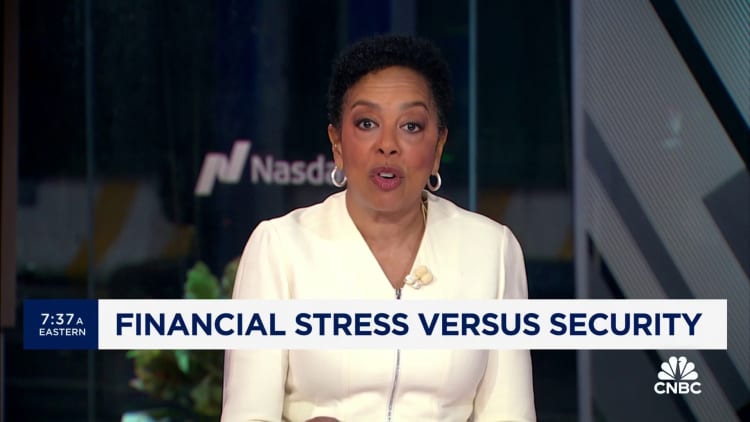Aleksandarnakic | E+ | Getty Images
When it comes to retirement, Americans have a new number in mind — $1.46 million — for how much they think they will need to live comfortably, according to new research from Northwestern Mutual.
That estimate is up 53% since 2020, when Americans said they would need $951,000, as the cost of living has surged in recent years. It is also up 15% from last year, when respondents said they would need $1.27 million.
For many savers, that goal may sound daunting, particularly as U.S. adults have an average of $88,400 currently saved toward retirement, the study found. Likewise, a recent CNBC survey showed that 53% of Americans feel like they are behind on their retirement savings.
However, experts say having a “magic number” in mind should not be a priority when planning for your retirement.
“The number isn’t the emphasis,” said John Roland, a certified financial planner and private wealth advisor at Northwestern Mutual’s Beyond Financial Advisors.
“That retirement number is really just a starting point for a broader conversation on how to make clear, competent decisions in that phase of your financial life when you’re distributing money versus when you’re accumulating money,” he said.
Fidelity Investments, the nation’s largest provider of 401(k) savings plans, has moved away from providing broad estimates for what is needed to retire, said Rita Assaf, vice president of retirement products at Fidelity.
“There is no one size fits all,” Assaf said.
She said your income likely differs from other people’s. Other factors — such as how much of your income you hope to replace in retirement, where you plan to live, the lifestyle you plan to have, your health-care costs, and longevity — will all impact the actual number you will need.
“It really depends on your personal situation,” Assaf said. “We do think having a retirement plan helps with that, but it’s got to be a personal retirement plan.”
The number experts say to focus on
Financial advisors agree that having a high savings rate, along with appropriate asset allocations, is one of the most significant components of building wealth. That’s the number to focus on, they say.
Fidelity provides a framework for evaluating your retirement savings progress based on your age.
The framework includes saving your salary by age 30, which then increases to twice your salary by age 35, three times by 40 and continues to go up until the goal of 10 times by age 67.
“That may or may not be feasible depending on where you’re at,” Assaf said of the savings goals. “But it just gives an easier view of what to do.”
The framework assumes that the investor will start saving at age 25 and save 15% annually.

Recent retirement research from Vanguard recommends that workers ramp up their annual retirement savings rate to 12% to 15% of their incomes and invest in an appropriate asset mix for their ages. Doing so can help improve their sustainable investment rate — the highest level of pre-retirement income they can replace.
“I would much rather have clients that save 15% of their income and get a 5% rate of return than save 1% of their income and get a 15% rate of return,” Roland said.
He said that to save money, you need not spend it, a concept emphasized in the book “The Millionaire Next Door.”
“Many people who have significant wealth, you would never know because they don’t look visibly wealthy,” Roland said.
“Those are the people that, as they save and accumulate wealth, oftentimes have accumulated more than they ever anticipated,” he said.
If setting your retirement savings deferral rate to 15% now feels like too much of a financial stretch, you may instead try to boost your contributions by 1% per year. Experts say incremental increases can make a big difference in the long run.

